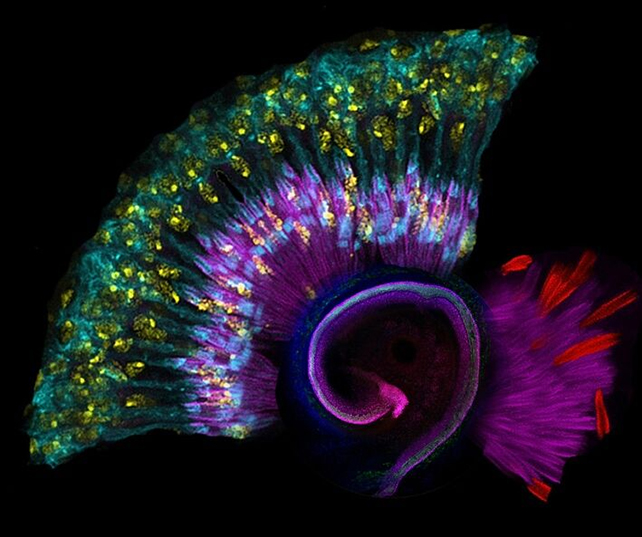Around 3 in 2,000 people are born with hearing loss. Typically irreversible, it's a lifelong condition that often presents challenges in today's society.
That could change, however, after the discovery of three genetic mutations which cause a rare form of congenital auditory impairment – and which could be targeted by treatments that may include a common supplement and the erectile dysfunction drug sildenafil, widely sold under the brand name Viagra.
The mutations occur in a gene encoding an enzyme called carboxypeptidase D (CPD), and were found by an international team of researchers through an extensive gene sequencing process.
Related: Scientists Trace Lupus to One of The World's Most Common Viruses
This led them to individuals in three unrelated families from Türkiye – all carrying a congenital form of deafness known as sensorineural hearing loss, and all harboring rare variants in the CPD gene.
Once the genetic mutations had been highlighted, the team investigated their impact on health and identified a common dietary supplement that could potentially repair some of the damage being done.
"This study is exciting because we found a new gene mutation that's linked to deafness, and more importantly we have a therapeutic target that can actually mitigate this condition," says neuroscientist Rong Grace Zhai from the University of Chicago.
Through further analysis of human skin tissue and cells from the cochlea of mice engineered to carry an inactive CPD gene, the researchers determined that the gene changes relating to deafness were interfering with the production of the amino acid arginine. Levels of other critical compounds, such as cyclic guanosine monophosphate (cGMP), were also decreased.

No arginine then means no nitric oxide, an important signaling molecule in the nervous system. Without suitable amounts of signaling molecules like nitric oxide and cGMP, the mouse ear's sensory cells become stressed and die, particularly in the short hairs vital to hearing.
The researchers also examined fruit flies with mutations in CPD-like genes, finding signs consistent with inner ear damage, including hearing loss and balance problems.
"It turns out that CPD maintains the level of arginine in the hair cells to allow a quick signaling cascade by generating nitric oxide," says Zhai.
"And that's why, although it's expressed ubiquitously in other cells throughout the nervous system, these hair cells in particular are more sensitive or vulnerable to the loss of CPD."
Encouragingly, when the team added arginine, cell death was reduced and nitric oxide levels were restored, easing cellular stress. Being mindful that the experiments are preliminary and based on cell cultures and animal models, the findings suggest the common dietary supplement L-arginine may help restore some forms of hearing loss.
The drug sildenafil, which acts as an enhancer for the signaling molecule cGMP, was also found to provide another potential avenue for treatment.
Related: Viagra Linked to Much Lower Risk of Death in Men, But Questions Remain
Future studies are planned to analyze biological pathways affected by the CPD gene and run similar tests on larger groups of people. The team has already found that these genetic mutations occur in other people with hearing loss, based on their analysis of a large UK genetic database.
Efforts are already underway to develop gene therapies for deafness, and each new study takes us a step closer to treating the underlying cellular damage.
"What makes this really impactful is that not only do we understand the underlying cellular and molecular mechanism for this kind of deafness, but we also found a promising therapeutic avenue for these patients," says Zhai.
"It is a good example of our efforts to repurpose FDA-approved drugs for treating rare diseases."
The research has been published in the Journal of Clinical Investigation.

